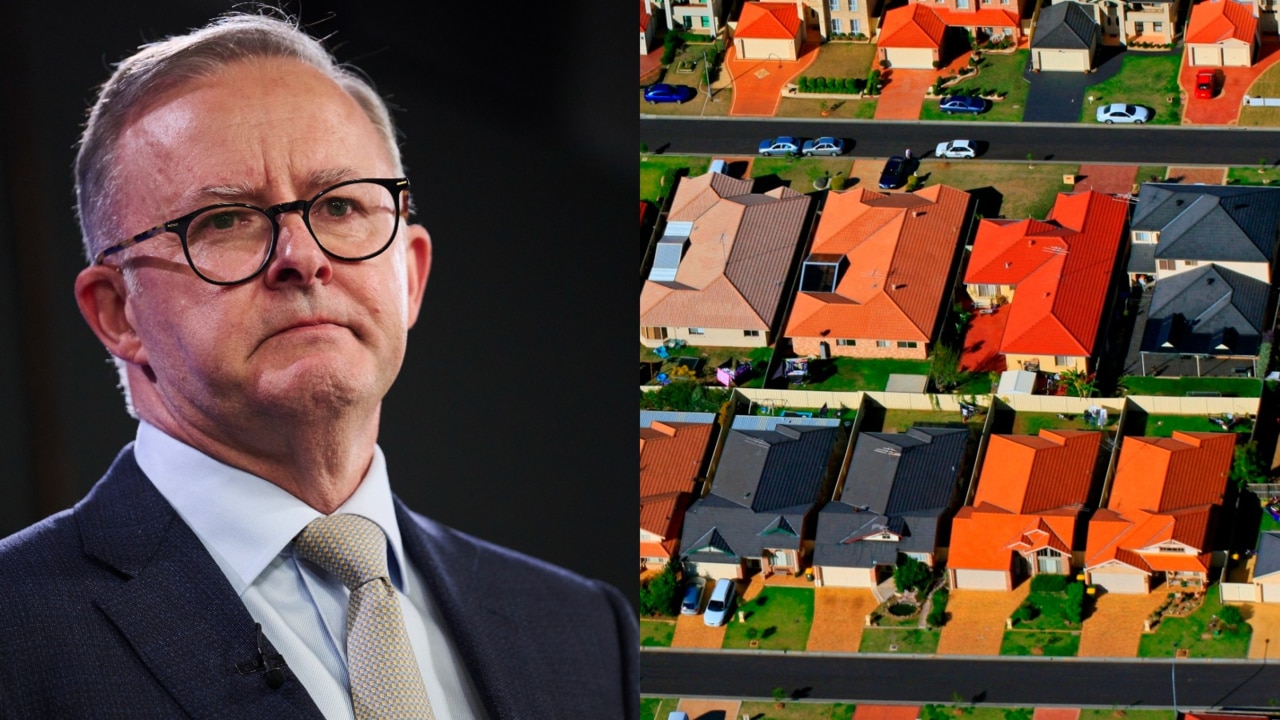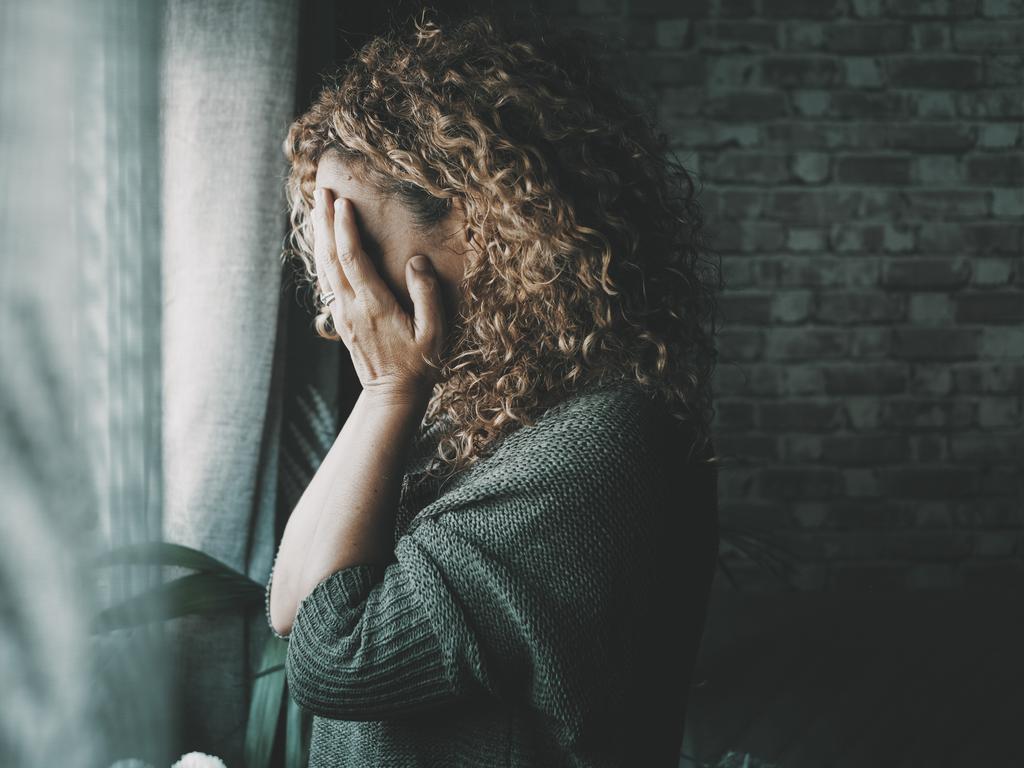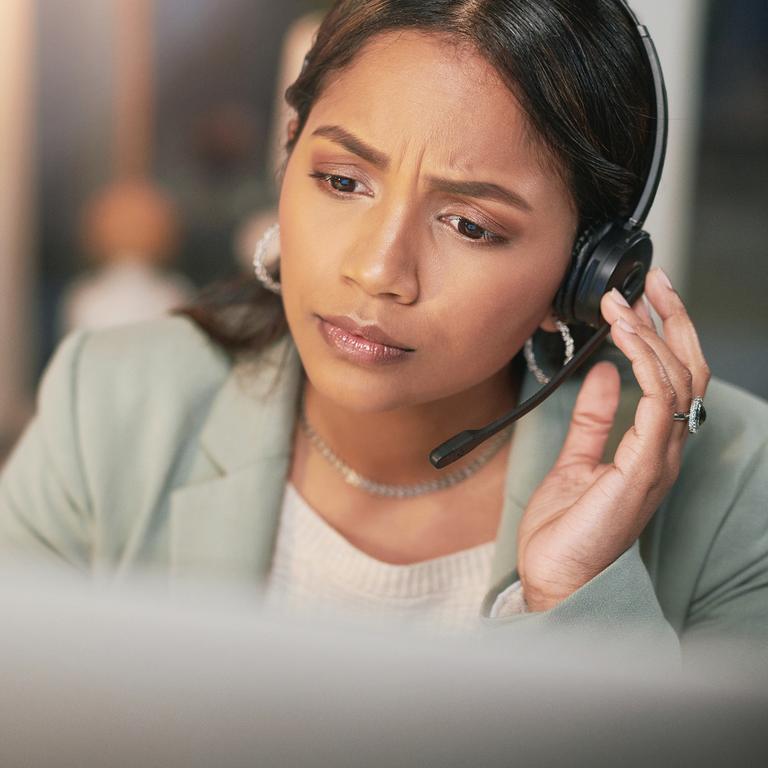How to help a friend when you suspect domestic abuse
Relationships expert Isiah McKimmie shares her advice on what to do if you fear someone you know is trapped in an abusive marriage.

Welcome to Relationship Rehab, news.com.au’s weekly column solving all your romantic problems, no holds barred. This week, our resident sexologist Isiah McKimmie helps a woman who’s concerned her neighbour is being abused.
QUESTION: My neighbour and friend is married to an ‘old school’ man and the stories she tells of his behaviour and comments make my toes curl. Like he doesn’t do any domestic tasks at all, and he comments when she doesn’t have the house perfect. She said he threatens her with divorce all the time, they share bank and social media accounts, and he gives her a budget/disapproves of her spending despite their apparent wealth. But although she sometimes complains, she always makes light of it, so I’ve never dared suggest to her this reeks of abuse … financial abuse, emotional abuse – who knows what other kinds of abuse? As a friend, what should I do?
ANSWER: It’s understandable that you’re concerned. Abuse needs to be taken seriously. Unfortunately, many people find themselves in relationships that are unhealthy and toxic, but aren’t necessarily abusive.

Many people being abused aren’t sure that they’re being abused
Sometimes couples experiencing violence and abuse are couples that from the outside look great. Sometimes, I even have couples in abusive relationships attend therapy and tell me that their relationship isn’t bad.
Many people in abusive relationships aren’t even sure that they’re being abused.
When we haven’t seen healthy relationships modelled to us, we often think that the relationship we’re in is normal – or better than the ones we saw growing up and are therefore OK.
Realising their relationship is unhealthy or abusive is often a slow and painful process for someone.

The difference between unhealthy relationships and abuse
People choose to stay in relationships with a range of dynamics and agreements that others wouldn’t see as acceptable or healthy. What is acceptable in relationships is also constantly changing and is dependent on culture.
There can also be a fine line between unhealthy and abusive. This is an incredibly complex issue. An important distinction between the two is a pattern of control through fear.
In domestic violence or coercive control relationships, one person controls the other through domination and fear. You’re right to be concerned by the controlling behaviour. Abuse often isn’t physical. Abusers create control through a range of tactics.
Much of what you’ve mentioned about your friend’s relationship is absolutely a potential sign of abuse: monitoring social media, controlling finances, criticism.
However, shared social media accounts, budgets and shared bank accounts can be present in healthy relationships. Criticism, arguments and threats of divorce are often present in relationships that aren’t abusive. In toxic and unhealthy relationships, both partners can display and be complicit in jealousy, verbal, emotional and even physical violence.

What to do if you think a friend of family member is in an abusive relationship?
• Respect their choices
Seeing a friend in any kind of unhealthy relationship – especially an abusive one – is difficult. As much as you might like to force them out of the relationship, you can’t make decisions for them. It’s important to respect their autonomy, but you can support them.
• Understand their situation
Although it can be hard to understand from the outside, leaving an abusive relationship is challenging. There are many reasons people choose to stay in them. It’s also incredibly dangerous for women to leave an abusive relationship. While leaving an abusive relationship (and for 18 months after leaving), women are at a significantly higher risk of homicide by their abuser.
• Start with a conversation
Don’t be afraid of talking about this, but do be mindful of how you bring it up. Being critical or accusatory might stop your friend talking to you, but sharing your concern may help her feel that she can share more with you.
Some suggestions are:
• I feel concerned for you when you tell me that.
• Does it feel okay for you when he does that?
• Are you safe?
Of course, if she dismisses you, there’s little that you can do. But sometimes, having someone ask can make a difference.

Direct them to support
If you believe a friend or family member is in an abusive relationship, suggest that they contact 1800RESPECT, the national domestic, family and sexual violence counselling, information and support service. By calling 1800RESPECT, they can get the information and support themselves to assist with their safety if they choose to stay and if they choose to leave.
Be supportive
There are many ways that you can support your friend. Your support can play an important role. Even just being there to listen can make a difference.
Take care of yourself
Watching or supporting someone through domestic violence can take a toll on you also. You can call 1800RESPECT to get support for yourself.
If you or someone you know is in an abusive relationship, contact 1800RESPECT for free, confidential support on 1800737732 or online.
Isiah McKimmie is a Couples Therapist, Sexologist, Sex Therapist and Lecturer. To book a session with her, visit her website or follow her on Instagram for more advice on relationships, sex and intimacy.






